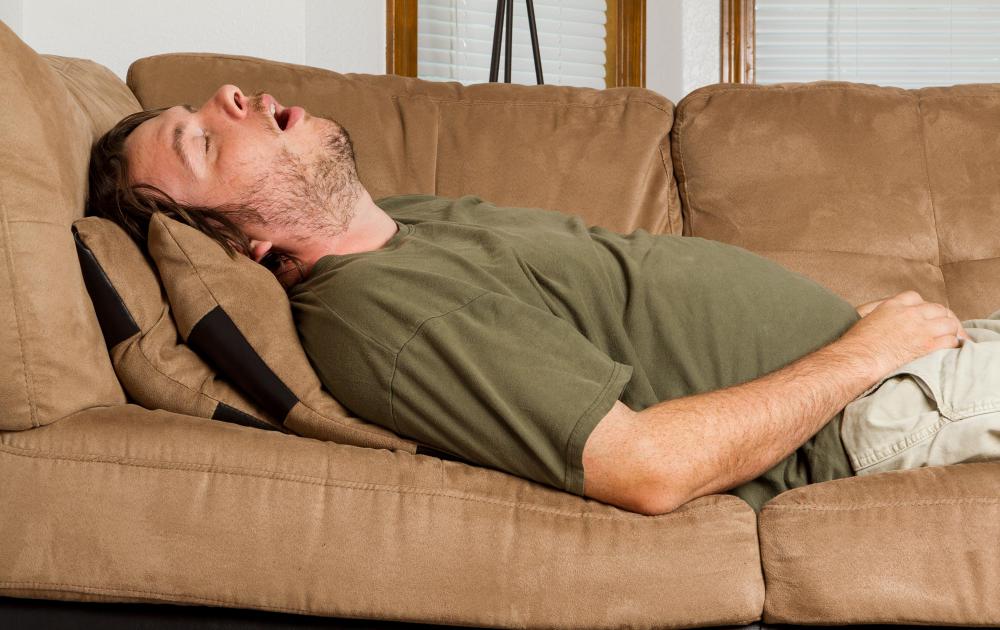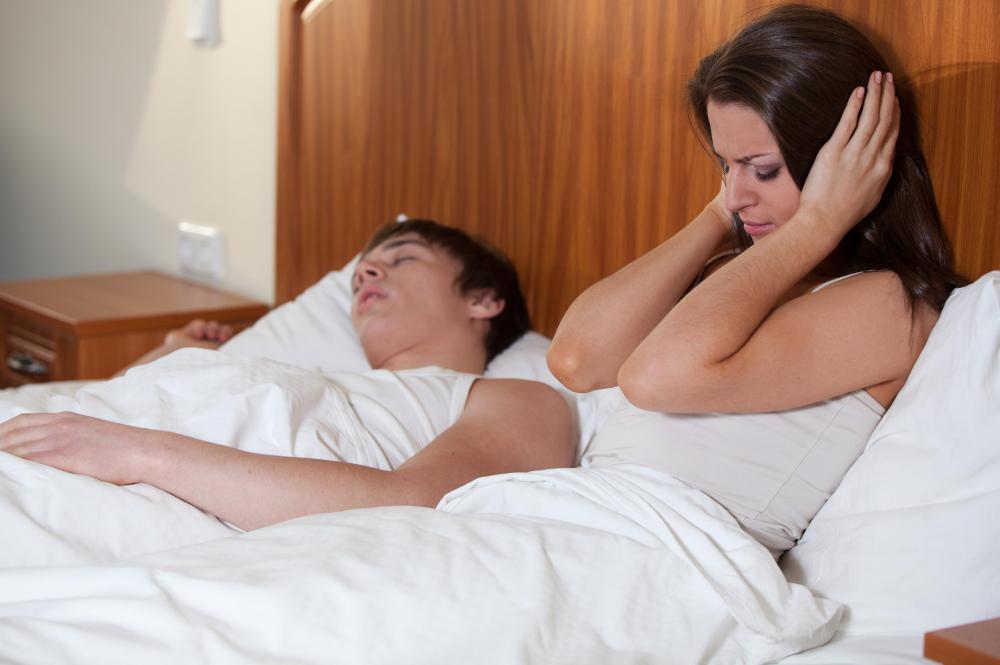At TheHealthBoard, we're committed to delivering accurate, trustworthy information. Our expert-authored content is rigorously fact-checked and sourced from credible authorities. Discover how we uphold the highest standards in providing you with reliable knowledge.
What is an Uvulopalatopharyngoplasty?
Uvulopalatopharyngoplasty (UPP) is a surgery in which certain tissues of the throat are removed. Depending upon the needs of the patient, the tissues removed may or may not include portions of the uvula, soft palate, tonsils, adenoids, and the pharynx. UPP is used to treat sleep apnea, a disorder in which the air passage in the throat closes during sleep, resulting in oxygen deprivation, sudden awakening, and loud snoring.
Depending on patient, a uvulopalatopharyngoplasty may be performed in isolation, or as part of a treatment plan called the Stanford Protocol. The Stanford Protocol is a series of surgeries organized into two phases. In the first phase, soft tissues that may be blocking the airway are removed or restructured, often including the base of the tongue. If the patient still has problems breathing at night, but there have been no complications as a result of the first phase procedures, the Stanford Protocol proceeds to the second phase, in which the jaws and tongue are moved forward in a surgical procedure called maxillomandibular advancement.

While the Stanford Protocol has a high success rate, with 60 to 70 percent of patients completely cured, and 90 percent experiencing significant improvement, UPP in isolation often has disappointing results. In addition, it is a matter of debate how much uvulopalatopharyngoplasty contributes to the ultimate success of the Stanford Protocol. UPP also carries a number of risks that make its usefulness questionable.

In some cases, uvulopalatopharyngoplasty can cause the formation of scar tissue that restricts the airway more than before, resulting in even worse sleep apnea. Many UPP patients also have problems with severe acid reflux after the procedure. Bleeding, swelling, infection, sore throat, and difficulty swallowing are other potential complications.

Some patients who undergo uvulopalatopharyngoplasty in isolation develop speech impediments as a result. Though uncommon in English speakers, speech problems resulting from UPP often include a nasal quality to the voice. If the uvula is removed, the patient will no longer be able to produce uvular sounds, such as the "r" sound in standard Parisian French.

Recovery after UPP takes about three weeks, during which it can be very difficult to swallow. The post-surgical medication can cause sleeplessness and worsen sleep apnea. Even in cases in which uvulopalatopharyngoplasty is initially helpful in preventing snoring, the sleep apnea tends to recur within a few years without maxillomandibular advancement. Only 60 percent of patients who have undergone UPP in isolation say that they would undergo the surgery again.
AS FEATURED ON:
AS FEATURED ON:
















Discussion Comments
Swollen tonsil, if occurring too often is best when removed.
I would not do it lightly because tonsils do serve a purpose.
The surgery is relatively simple and straight forward.
This surgery sounds pretty drastic to me. Yes, if somebody is suffering from severe snoring and lack of oxygen while sleeping, the surgery for snoring might be necessary, because snoring is not only annoying but it is a health hazard.
I just wish there was something less drastic available as a cure.
Post your comments